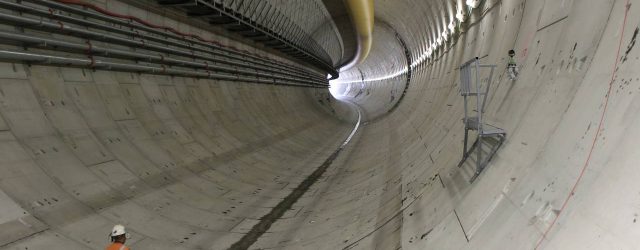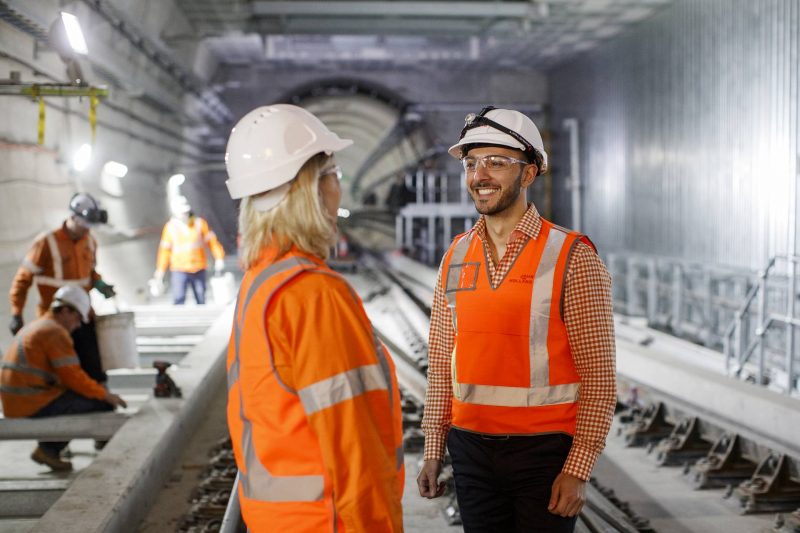The Glue That Binds Our Industry Together
Posted: 23rd February 2021
Posted in: Blog

Posted: 23rd February 2021
Posted in: Blog
The Australian Constructors Association (ACA) published a series of documents late last year that analysed the most pressing problems facing the industry and, importantly, charted a clear way forward.
Our work revealed that three pillars are essential for supporting the sustainability of the construction industry:
The challenge with strengthening these pillars is that they are all interlinked. Improvement in one requires improvement in all. This relationship makes improving the sustainability of the industry a difficult task and it highlights a genuine need for the construction industry to work together.
Recently, the ACA along with a group of construction industry leaders, met with professionals from across the sector to discuss the issues from the bottom up. The clear message from the forum was that the culture of the industry needs to change. This is not surprising given the headline statistics. Women make up just 12 per cent of the construction workforce, and construction workers are six times more likely to die from suicide than a workplace incident.
With International Women’s Day approaching, we have been singling out diversity through our LinkedIn posts and this topic is striking a chord with online audiences. Recently, we shared a report on women in construction released by the Victorian Government which found that women in trades and semi-skilled roles in construction experience high rates of discrimination and lack workplace support. This post attracted considerable interest and support with one follower commenting, “We are committed to making this happen and love to see this in my lifetime.” Another said, ‘This is a behavioural change required where we have to set the scene now where flexibility, gender diversity, a fully inclusive and equal pay workforce is the new norm and not an aspiration.” The ACA acknowledges there is a problem and we need a partnership approach the issues.
The appetite for changing industry culture is shared by both industry and government—at all levels. A better construction sector is in Australia’s interests. But what is the ideal culture we are trying to create and how do we create lasting change?
Generally, we know what needs to change. We need to adopt a new approach to ways of working. Industry can start this change by striving to be better partner with its own staff. While our own workforce culture is a vast improvement on where it used to be, there is still much that needs to be done to attract and retain talent in the industry, particularly in terms of diversity, employee health and safety, mental health and work/life balance and providing sustainable levels of education and training.
Recognising the cultural problems that are preventing construction from being an employer of choice, the ACA is a proud partner of the Construction Industry Culture Taskforce (CICT). Through this initiative we have joined forces with the governments of New South Wales and Victoria and Australia’s leading workplace researchers to develop a new Culture Standard which will lift the productivity and performance of construction and address issues of excessive work hours and fatigue, poor mental health, and failure to attract a diverse workforce.
The Culture Standard will establish a standard approach to improved practices for all members of the industry to meet. Industry customers will need to support this cultural shift by committing to buy construction services that meet the Culture Standard. For the public sector, this will mean adopting the Culture Standard as a part of its procurement requirements whenever it buys construction services.
The Culture Standard will be released for consultation in the coming months and we encourage all stakeholders to get involved and provide feedback. We all need to have ‘skin in the game’ and work together if change is to be achieved.
The multi-faceted cultural issue is not just one of diversity and inclusiveness or mental health and work/life balance. Fundamentally, it is one of collaboration and trust. Unfortunately, the ‘dog eat dog’ attitude prevails and no one part of the sector is to blame for this situation. We receive constant feedback from across the industry about relationships and project practices. We are seeing that the key ingredient for success extends beyond the skill of construction to the skill of collaborating.
To help move industry into a more collaborative frame, the ACA is an active participant in the Construction Industry Leadership Forum (CILF). Partnering again with the governments of New South Wales and Victoria, we are sharpening the focus on procurement reform to increase collaboration and to redefine value for money by expanding the time and cost considerations to also include social components.
Yes, change is slow, but the wheels are in motion. We know what needs to be done and we firmly have our sights set on achieving real and lasting change.
